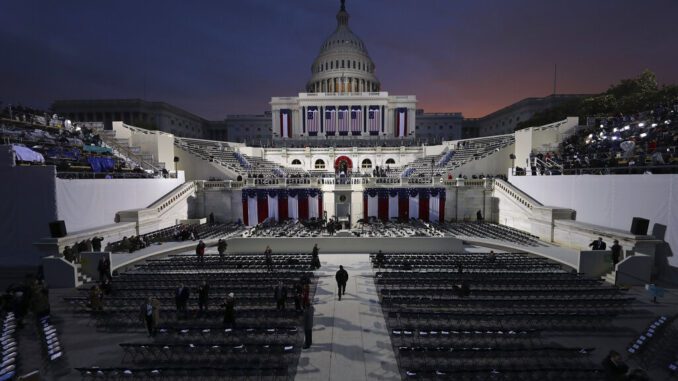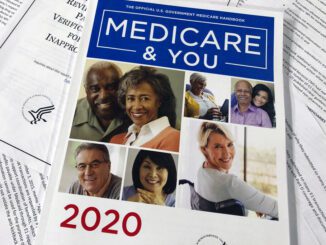
(Article first appeared in the July 25, 2023, edition of Discourse magazine published by the Mercatus Center at George Mason University)
9th Law: When Americans express opposition to a policy, those in government will reconsider their messaging strategy before reconsidering the policy.
Whenever a survey reveals that Americans oppose the position of an elected official or a party, the first response is usually not to accept that criticism and reconsider the policy. The first response is to blame inadequate messaging. It will be asserted that Americans do in fact support the policies when fully and properly understood.
This reflexive response is not merely for public consumption. Even behind the scenes, elected officials are always much slower to grasp the need to modify the substance of their policies than they are to believe that they merely need to retool their communications strategy. Sometimes their hand is eventually forced by reality, and they must back away from a previously announced position. But in the meantime, they will try virtually everything else first.
Examples of this dynamic are legion. In 2010, Democrats lost badly in midterm elections after passing the Affordable Care Act, due to repeatedly expressed voter opposition to the law, and widespread public anger over having been misled with the false claim that those who liked their previous health coverage would be able to keep it. Instead of acknowledging the legitimacy of the criticism, many advocates for the law denied there was any basis for public concern and blamed voters for their want of understanding. Similarly, Republicans’ role in a government shutdown helped President Bill Clinton win reelection in 1996, yet Speaker Newt Gingrich, who led House Republican strategy at that time, perceived no fault in Republicans’ substantive positioning. Even decades afterward, he continued to assert that the strategy had merely been inaccurately portrayed in the media.
An amusing corollary of this principle is that each side of the aisle always believes that, while their own policies are substantively superior, they are forever outmatched by the communications brilliance of the opposing side. It is an article of faith on MSNBC that Americans are forever being duped by conservative propaganda spewed from Fox News, and equally an article of faith on Fox News that the opposite is happening through the left’s control over mainstream media.
There have even been bestselling books written on the conviction that Americans are too dim to understand the policies that are best for them, a cognitive problem addressed only by matching the other side’s stirring appeals to mindless emotion. Of course, good policy can indeed be undermined by poor communication, but the policy is the problem far more often than politicians like to acknowledge, even to themselves.
10th Law: When politicians justify their positions in terms of their popularity, they are probably embracing bad policy.
When a policy is a good one, politicians can explain why. They can explain who will benefit and why the benefits outweigh the costs. But when politicians instead emphasize the popularity of the policy in response to skeptical questioning, that usually means it’s a bad policy. It’s a “tell” — a tell that they’re pursuing the policy for political reasons first and foremost, as well as a tell that the substantive justification for a policy isn’t so easily summoned to mind.
There are many examples, but a classic one is the stimulus checks of $1,400 sent out as part of the American Rescue Plan in early 2021. There was no substantive justification for sending checks of this magnitude to nearly everyone, only the political justification that sponsors had campaigned on the promise to send each person $2,000 from the U.S. Treasury (the $1,400 payments enacted in early 2021 followed payments of $600 the previous December). The desires of those receiving the payments became the leading rationale for the policy.
As a result, the policy was enacted as part of a massive spending package despite warnings from leading economists that flooding an economy with nearly $2 trillion in additional spending, right when inflationary pressures were building, was irresponsible. The spending spree wasn’t the sole cause of the soaring inflation that followed, but it was an incredibly poor policy decision at that moment, driven by politics rather than economics. It bears mention that the irresponsibility on this issue was bipartisan: Though the last part of the payments was enacted by a Democratic Congress at the start of the Biden administration, the first part was enacted in a lame-duck Congress under split party control during the previous administration, with President Donald Trump calling for bigger payments.
Another recent example of this phenomenon is student debt relief pursued by President Joe Biden. There is hardly a policy initiative under debate that receives more thorough condemnation by expert economists of both parties: It would be massively expensive, inflationary and regressive (a giveaway to the better-off), and few were surprised when the Supreme Court recently declared it illegal. But it’s naturally popular with those who would reap the financial benefit of receiving an expensive education without paying for it, and this popularity is often one of the first things cited in response to those who criticize it.
The 10 laws of U.S. politics cited over the past couple of months are applicable across party lines, and they operate both before and after elective office changes hands. A grasp of these laws would help voters to better understand how and why politicians act as they do.
Charles Blahous is the J. Fish and Lillian F. Smith chair and senior research strategist at the Mercatus Center at George Mason University



